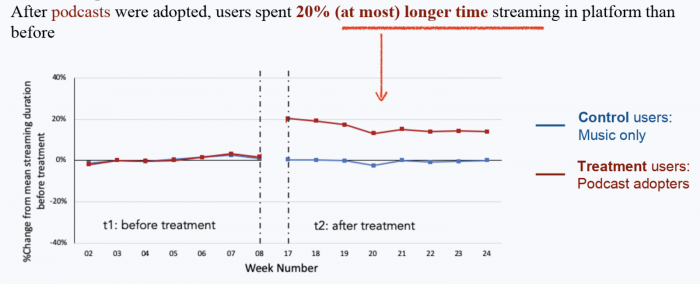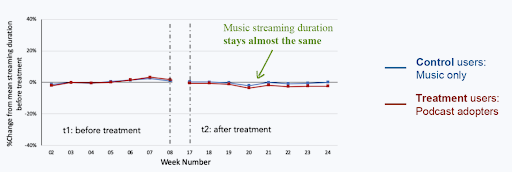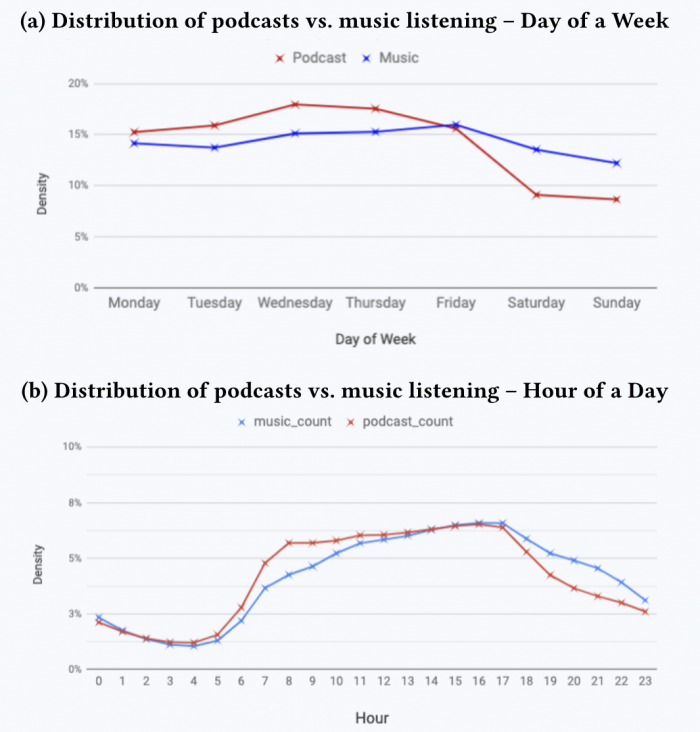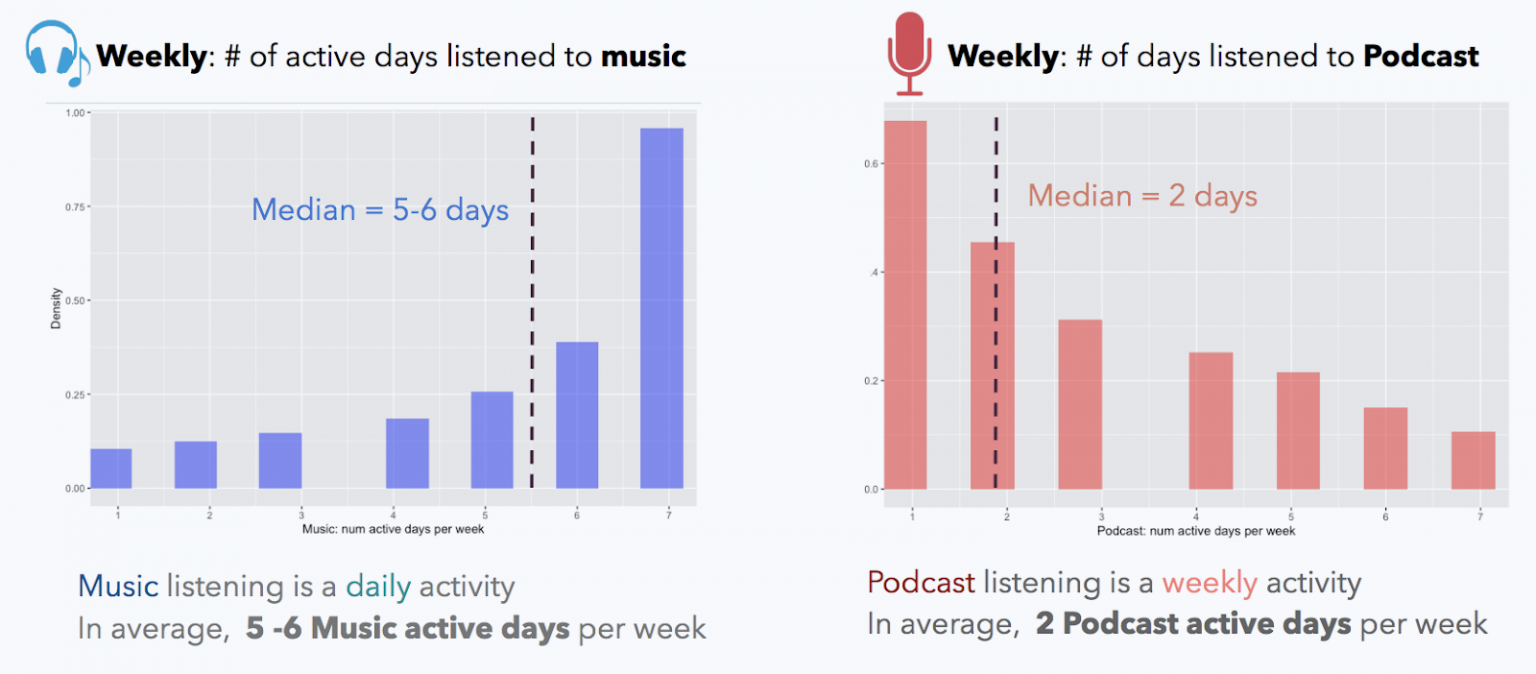Do podcasts and music compete with one another? Understanding users’ audio streaming habits

Because Spotify offers both music and podcast content on the same platform, we have a unique view into people’s audio streaming habits across both types of content. And as podcast listening continues to rise, we wanted to explore how podcast and music listening habits interact with each other, especially for listeners who have a history of music consumption but are new to podcasts.
In this research, we asked whether adopting podcasts as a new medium influences listeners’ previous habits for consuming music. We found that in general, adding podcast consumption to a listener’s “diet” of content does not take away time from music streaming, but rather that listeners make adjustments to their schedules to fit in both content types. In our study, we first identified users who listened to their very first podcast on Spotify after March 1, 2019 and became podcast adopters within two months. We defined podcast adopters to be those who listened to at least one hour of a show and three episodes of that show, based on user research. Using propensity score matching, we created a control group, who are similar users with similar streaming patterns (up until March 1) but never listened to podcasts on Spotify.

We found that after they started listening to podcasts, podcast adopters spend on average 20% more total time per week streaming on Spotify. This indicates that as people pick up podcast listening, they tend to add it to their previous habits (as opposed to fitting more content into the same timeframe of streaming).

We also found evidence of this trend in podcast adopters’ music listening habits: while adding podcasts very mildly lowered users' music listening time on average, the change was insignificant in relation to the 20% increase in overall listening time.

So how do new podcast adopters make room for this new type of content? It turns out that the average podcast adopter adjusts their routine, opening up new “time slots” for podcast listening that indicate a difference in perceived purpose for each content type. For example, on average, podcast adopters listened to podcasts more often on weekdays (particularly during typical commute times), while they tend to listen to music more often on weekends. Also, they listened to podcasts more in the mornings, and music more in the evenings.

Another interesting insight was that music listening is an everyday activity and users listen to music almost every day, while podcast listening is more of a weekly activity:

While there are many factors that could be influencing these trends and more research is necessary to continue exploring the differences between podcast and music listening habits, we can assess from this research that music and podcasts both play distinctive roles in users' listening experience.
Analysis on podcast categories also showed that certain show types—such as stories, comedy and true crime—tended to serve as potential “gateways” for activating users to become podcast adopters. It revealed that users who start their podcast listening journey with one of these categories were more likely to stay podcast-listeners for longer amounts of time.
Applications for machine learning
Using the habitual characteristics of both music and podcast consumption patterns from this study, we also trained and tested a few different models to predict the content of a listening session based on the user's previous interactions with the system. The prediction task was defined as: Can we correctly identify if the user would listen to a podcast in this session or not, with only having access to the user's previous sessions.
Amongst all approaches, a Long Short-Term Memory (LSTM) based model, that used listening sequences instead of aggregate representations performed best in predicting whether a session would include podcasts or music (with 96% accuracy). These results again confirmed the habitual nature of users’ listening behaviour for both podcasts and music.
Spotify is becoming a platform where millions of users turn into for listening to their favorite podcast or music, and thousands of creators serve their content. This makes it critical for us to understand the way these two mediums interact with one another. This research helps us better understand both our user and creator needs and provide a viable marketplace for all parties involved.
Further details can be found on our Web Conf paper



